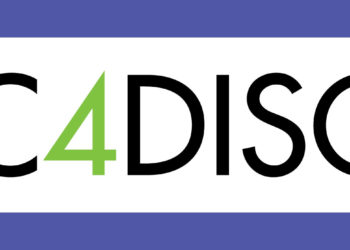One of our ongoing goals at The Scholarly Kitchen is to increase the range of voices and opinions found on the blog, particularly bringing in more geographic diversity. Our core set of bloggers are all based in the US and the UK, but as scholarly research from outside of these regions continues to increase both its quantity and its importance, an understanding of the scholarly communications global landscape is increasingly useful. While we’ve discussed the struggles we’ve had in bringing in a more global perspective (writing regularly requires significant time and effort; it only seems to appeal to a relatively small percentage of people; voicing what may be a controversial opinion publicly requires a certain level of security and privilege); we have had some success through both interview and guest author posts.

Since it may seem like you only read posts here from the same old authors pictured at right, we wanted to call your attention to a few posts you may have missed that bring in voices from around the globe:
Naveen Zehra Minai offers a great overview of what conditions are like for researchers in “regions in Africa, Asia, Europe, and the Americas which are not part of institutionalized networks of power, authority, visibility, and access in global academia.”
Women in Research: Stories from the Global South
Gender bias and the #MeToo movement have been focuses at The Scholarly Kitchen, and those same problematic forces create particular issues and challenges in the Global South. Chef Siân Harris looks at a project interviewing researchers from Tanzania, Kenya, Nepal, Somalia and Sierra Leone.
Tackling Diversity in Scholarly Communications – Part 2
After putting together an “Ask The Chefs” post about ways to increase diversity, we similarly reached out to colleagues across Africa, Asia, and Latin America. Their responses, “give valuable perspectives on diversity of scholarly communication and on what is meant by the question itself, by providing responses about the diversity of the people involved but also about diversity of research output.”
Ask the Community (and Chefs): How Can We Achieve Equitable Participation in Open Research? Part 1
Ask the Community (and Chefs): How Can We Achieve Equitable Participation in Open Research? Part 2
Open access models and policies are largely being driven by regions that have well-established infrastructure and significant levels of research and library funding available. In order to think about these approaches more globally, we reached out to some of our regular bloggers, but also to librarians, publishers, and researchers from different regions for their thoughts.
While this sampling of posts offers valuable information, we recognize that they are only beginning to scratch the surface of what we need to understand to help make scholarly communication a truly global enterprise. We want to do a better job in providing a platform where these voices can help drive positive change. Let us know in the comments below what you would like to learn more about from librarians, researchers, and publishers from around the globe. And if you’re one of those librarians, researchers, or publishers, let us know what you think we need to cover — guest posts always welcome!
Discussion
4 Thoughts on "Different Places, Different Voices"
Hi, I’d like to ask a question, not on the posts above, but on the theme of different perspectives in scholarly research. One of our academics has asked for strategies on how to counter-act bias and increase citations when your work is challenging dominant theories? It seems that when your work criticises central theories you don’t get cited as often. Any ideas or advice on how you might have to counter-act these inherent biases?
“While it is not our intention to dwell here on the ‘politics of publishing’ in which we as academics all (to a greater or lesser extent) collude, we would concur with Li and Parker’s (2012) observation that perspectives critical of an influential ‘centre’ ground within the literature? in this case, a positive psychological stance developed within a positivist framework ? can expect to find themselves marginalized in terms of citation patterns and influence (Li and Parker 2012).
As Li and Parker (2012: 321) note the audience for such [critical] writing is likely to lie outside the centre [of the field], which means that marginality and interdisciplinarity should be understood as strategic positions, not indicators of the failure to play a particular game (p 5).”
This quote is from Iszatt-White, M. and S. Kempster (2018) “Authentic Leadership: Getting Back to the Roots of the ‘Root Construct’?” International Journal of Management Reviews
Thanks in advance for your time.
These are good questions, Amanda. I think the difficulty in answering them will be that the answer(s) depend(s) on lots of factors that may or may not be strictly related to whether or not the paper in question “criticises central theories.”
For example, consider a paper that challenges the commonly-held view that gender is biologically determined and relatively static. The very fact that the paper challenges that view may make it less likely to be cited than a paper that accepts that view. However, other things about the paper challenges will affect its citability as well. Does the author cite a large amount of rigorous research in support of the article’s position? If so, that may increase the likelihood that it will be cited. Does the author formulate logically strong arguments and express them clearly? That may increase its likelihood of citation as well. Is the article published in a mainstream journal? Rightly or wrongly, that will definitely increase its likelihood of citation.
What this all means is that two papers, each of which challenges a “central theory” in more or less the same way, may be unequally cited for reasons that aren’t necessarily related to the non-mainstream view it represents. This means, in turn, that your question may not be one that can be answered in general or in the abstract; the answer will likely vary somewhat from paper to paper.
There’s also probably tremendous variation from field to field, depending on the citation behaviors of the individual area of study.
The whole question though, tries to put a value on citations, which is reasonable, given that many fields use citation-based metrics as their primary means of measuring researcher performance (though there are some fields that shun the Impact Factor entirely). What may be more important then, is the question of what exactly a citation means, and what it means when we start counting them, as asked in these two posts by Karin Wulf:
https://scholarlykitchen.sspnet.org/2015/07/16/when-do-citations-reflect-impact/
Please don’t rule out the possibility of starting a new journal to reflect the paradigm shift you describe.



